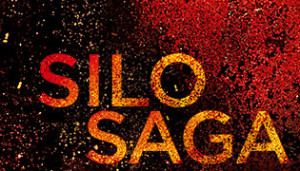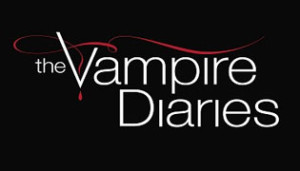I am always amused when fanfic authors get upset when the creators and copyright holders of the characters they are writing about dare to assert their legal, creative and moral rights. A great example comes from this recent Wall Street Journal article about Amazon’s Kindle Worlds, which allows fanfic authors a platform to write, publish and sell books about characters and fictional worlds they didn’t create and don’t own.
To avoid copyright infringement, Amazon struck deals with several authors and entertainment companies. Amazon gives them a cut of royalties and the rights to use the new characters and plot lines in the fan-fiction material in exchange for licensing their intellectual property. So far, Amazon has acquired licenses for 22 fictional properties, ranging from the novels of Kurt Vonnegut, to the comic series G.I. Joe, to Alloy Entertainment’s popular teen book and TV series “Gossip Girl,” “Pretty Little Liars” and “The Vampire Diaries.” […]The move to profit from fan fiction has alarmed some writers and copyright experts who see it as a naked attempt to rob amateur writers of their intellectual property, before they have a chance to build an audience.
What irks some of these fanfic authors are the clauses in the Amazon Kindle Worlds contract that reminds them that, hey, you’re welcome to play here, but you don’t own the underlying rights, the creators and copyright holders of the characters do.
The move to profit from fan fiction has alarmed some writers and copyright experts who see it as a naked attempt to rob amateur writers of their intellectual property, before they have a chance to build an audience.
 These same “experts” aren’t concerned when amateur writers nakedly rob authors of their intellectual property by writing and disseminating unauthorized fanfic based on characters and worlds the fanficcers didn’t create and don’t own. They are only concerned when the creators and rights holders have the audicity to exert their moral, artistic, and legal rights to “profit for fan fiction”:
These same “experts” aren’t concerned when amateur writers nakedly rob authors of their intellectual property by writing and disseminating unauthorized fanfic based on characters and worlds the fanficcers didn’t create and don’t own. They are only concerned when the creators and rights holders have the audicity to exert their moral, artistic, and legal rights to “profit for fan fiction”:
“It feels like a land grab,” said Francesca Coppa, an English professor at Muhlenberg College in Allentown, Penn., who writes “Sherlock,” “True Blood” and other fan fiction on the side. “Big companies are trying to insert themselves explicitly to get people who don’t know any better to sign away rights to things that might be profitable.”
No one is stopping Ms. Coppa or these writers from going out and writing their own, wholly original, legally unencumbered stories. Instead, these writers choose to write Vampire Diaries or Silo Saga fanfic instead… to utilize characters that don’t belong to them and then whine when the creators want to share in any profits that arise from the sale of those works. If there’s a “land grab” here, it’s not the creators and copyright holders who are making it… it’s the fanfic authors who think they should be able to freely use, and profit from, other people’s creations. The fanfic writers should be delighted and thrilled to have the chance through Kindle Worlds to actually sell their fanfic…instead of complaining that they can’t own the stories set in the fictional worlds that they didn’t create.
“Under the Amazon agreement, writers are giving away more rights than they would for something that is quote unquote original,” Ms. Tandy said. “Writers should be very careful that they’re comfortable giving away those rights.”
 I love how Ms. Tandy puts quotes around original as if its a lesser form of writing than stuff based on someone else’s work…and implies that it’s unfair for the creators of original work to want their legal, creative and moral rights protected…and that fanfic authors of quote unquote unoriginal work somehow deserve greater protections. She has it all ass-backwards. Fanfic writers aren’t “giving away” more rights in this scenario, they are being granted rights they didn’t already have… to use and profit from characters they didn’t create and don’t own.
I love how Ms. Tandy puts quotes around original as if its a lesser form of writing than stuff based on someone else’s work…and implies that it’s unfair for the creators of original work to want their legal, creative and moral rights protected…and that fanfic authors of quote unquote unoriginal work somehow deserve greater protections. She has it all ass-backwards. Fanfic writers aren’t “giving away” more rights in this scenario, they are being granted rights they didn’t already have… to use and profit from characters they didn’t create and don’t own.
(I should mention my own novel franchise, The Dead Man, is part of Kindle Worlds and that there are presently four licensed fanfiction books based on the series, which I co-created with William Rabkin. I also wrote, as a work-for-hire writer for Penguin/Putnam, eight books based on Diagnosis Murder and fifteen books based on Monk, two TV series that I didn’t create. So I know what it means to write novels that I don’t own and, on the other side, to own a franchise licensed to Kindle Worlds.)
